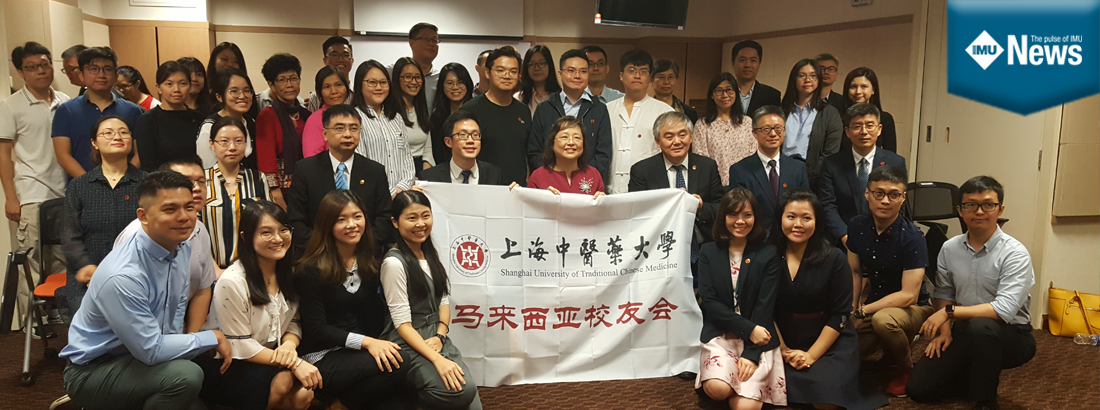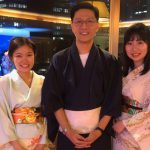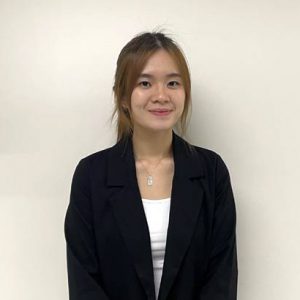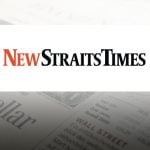When we were younger, there is always that one person whom we admire for many reasons. It could be our sibling, teacher or relative. We would want to speak and behave like them. While some of us do it intentionally, others may do it unintentionally. However, as we grow older, our role model options may shift to either a celebrity, an entrepreneur or maybe a well-known surgeon. Role models can significantly influence our world view, behaviour and growth.
Let us take a moment and ask ourselves who is our role model in life? Why do we admire them? What desirable values and behaviour they have that attract us towards them?
Is risk-taker being one of them?
Many of life’s greatest achievements require going outside of our comfort zone. Whether it means moving across the world for a job opportunity, public speaking, investing money to help your business grow or putting yourself out there for the chance to find love, some of life’s most rewarding experiences come because of taking risks.
However, many of us have a difficult time dealing with the ambiguity and uncertainty that goes along with taking risks. A feeling of nervousness grows out of not knowing the consequence and the fear of potential disappointment. What if it was a mistake I regret?
What if I embarrass myself in front of everyone? What if I lose all the money that I invested? What if I open my heart and get rejected? What if I am not good enough?
What would you rather be? A Big Fish in a Small Pond or a Small Fish in a Big Pond?
It is a pressing question pondered by many: college-goers and career-oriented individuals.
How do we ensure that our decision or next steps affect our progress positively consequently lands us to the desired outcome? Both teach us something about ourselves and give us a chance to expand our skills. Each comes with its own special set of challenges. Neither should be eliminated because of your current level of comfort or confidence.
There are no certain formulas to it, the only possibilities are taking a chance and trusting your ability to move forward.
Lim Ren Jye was the fifth cohort of IMU medical students (starting his studies in 1999) yes you heard us right. He was one of the first few batches of doctors from IMU.
Lim made his career decision based on his high admiration for Dato Dr Kandasami Palayan, a renowned surgeon during the ’90s. “When he enters the ward, all specialists and consultants will be still. He was looked upon as GOD among other Surgeons. How soon can I achieve that and what can I do?” expressed Lim.
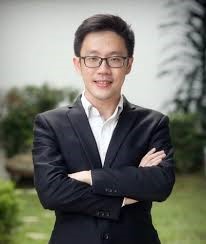
Lim took a rather non-conventional approach ladened with uncertainty. He followed his grandfather’s footsteps to venture into traditional Chinese medicine (T&CM). T&CM is a broad range of medicine practices sharing common concepts which have been developed in China and are based on a tradition of more than 2,000 years, including various forms of herbal medicine, acupuncture, massage (tui na), exercise (qigong), and dietary therapy.
Lim’s grandfather passed away when his father was two or three years old. He was always generous and always gave away medication for free of charge. When they needed to go for home visits, they would have to pay for their own lamps and gasoline. Lim felt that there must be some value and asset within T&CM to be so sustainable.
“Having a predecessor, why not continue the legacy?” thought Lim.
Lim’s apophony moment took place upon finishing his housemanship at Hospital Tuanku Ja’afar in Seremban and 3 years as a medical officer in Klinik Kesihatan Mantin, when Lim took the role of Assistant Director of Policy and Development at the T&CM Division at Ministry of Health (MoH) headquarters. That was when the proper understanding and exposure of T&CM only came to Lim.
Pursuing a Masters in Integrative Medicine at Shanghai University
“After about a year with the T&CM Division in MOH headquarters, I was offered a JPA scholarship to do a Masters in Integrative Medicine at Shanghai University,” said Lim. “At the time (around 2007–2008), Malaysia had just launched integrated T&CM services at three hospitals; Hospital Kepala Batas in Penang, Hospital Sultan Ismail (HSI) in Johor Bahru, and Hospital Putrajaya.”
They wanted to send Lim for a Masters in T&CM, but it did not make sense for a Western medicine-trained doctor like him to do so as he did not have any background in T&CM. Instead, he went for Integrative Medicine (IM), which was also in line with the government’s intended direction; they needed someone who could both work with the oncologists and prescribe T&CM treatments such as herbal medicines and acupuncture.
For Lim, with zero knowledge of T&CM, he had to take the extra effort to attend degree classes just to get the grip of the T&CM foundation. Lim studied morning till night, he made friends with Year 1 to Year 4-degree students. “I made a lot of different friends, and we are still friends. I also took this opportunity to have founded the Shanghai alumni association in Malaysia. It is a platform to connect, to learn, and to discuss together.” said Lim.
After completing his Maters in 2011, Lim came back and join the MoH T&CM division. After 6 months working as the Administrative Officer, he got promoted as the Head of Policy and Development. “End of the day I will not forget what I have learned.” expressed Lim.

In 2013, he was appointed as the Head of the newly launched T&CM Unit in i-Care at the National Cancer Institute (Institut Kanser Negara, IKN) and where it eventually merged with the Hospital Putrajaya’s T&CM services.

Since then, he had been flying frequently to Nanjing every year to continue his professional journey in the field of Chinese medicine. Lim then pursued his PhD for 3 years in Chinese Medicine in Oncology part-time at the Nanjing University of Chinese Medicine while practicing in IKN. What a journey it has been for Lim, he pushed his limits beyond his imagination.
As part of his PhD, he was the principal investigator of a systematic review and a clinical trial conducted with the IKN T&CM Unit on Chinese herbal medicines as adjunct therapies in radiotherapy-induced xerostomia in head and neck cancer patients. Both studies were eventually published papers. [Complement Ther Clin Pract 2018;30:6–13; Support Care Cancer 2019;27:3491–3498]
Lim described his experiences in hospitals in China, as a quite different working environment from Malaysia. “We are closer to the UK, while they are closer to the US. For example, in China, venal punctures are usually done by nurses. Whereas the way we have been brought up here, we do almost everything.”
Lim also mentioned that there was also a stronger emphasis on documentation, as the Shanghai doctors would always take time afterward rounds to key in their reports. “That’s something that Malaysian doctors can be quite bad at; not only writing things down but recording key information,” said Lim.
Another key difference, he added, was that IM physicians specializing in oncology were trained to prescribe chemotherapy as well as medication in China, whereas in Malaysia only those in the national registry of oncologists were qualified to do so.
In 2019, Lim left IKN to help build a new T&CM unit at the Sunway Medical Hospital. He was very happy and satisfied with IKN, however, he reached a bottleneck situation and started thinking of his purpose and aim. Lim wants to leave the private world and to bring reformation in the T&CM industry. To be a role model for other peers.
During the mid-level of the COVID-19 outbreak, Lim submitted a research proposal to use herbal treatment for COVID-19 patients. He had four confirmed cases and did a teleconsultation and delivered the recommended medication. He was attempting to do his research in collaboration with Hospital Sungai Buloh. However, when it was sanctioned the number of cases started to decrease and no longer subjects for the research. Currently, he treats patients that look for him and he is looking forward to writing a paper for it.
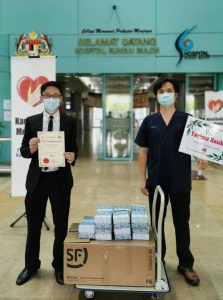
PPE Donation to Hospital Sungai Buloh
The takeaway? The risk Lim took then has paid off in various manners. Taking a risk to accomplish a goal necessitates courage to face the fear of uncertainty. No matter the outcome, either way, we grow through the process and turn out to be more resilient and confident. Better yet, developing those skills helps in taking more risks and enhances the chances of achieving future goals.
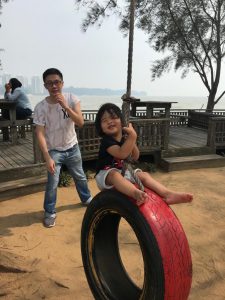
Lim spends his time reading, cycling, traveling, and playing badminton. He also does Batuan Jing (Xi Gong Exercise) which he introduced to i-Care for them to practice. “Nowadays graduates are very business-driven, they are not humble enough to respect their peers and teachers. Money surpasses passion,” said Lim.
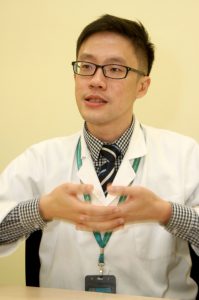
Lim’s ultimate advice is university only teaches us skill and knowledge. Our attitude towards life is what determines our success. This will drive you to where you want to head towards. Role models provide a vision, and visual proof, for who we aspire to be.




